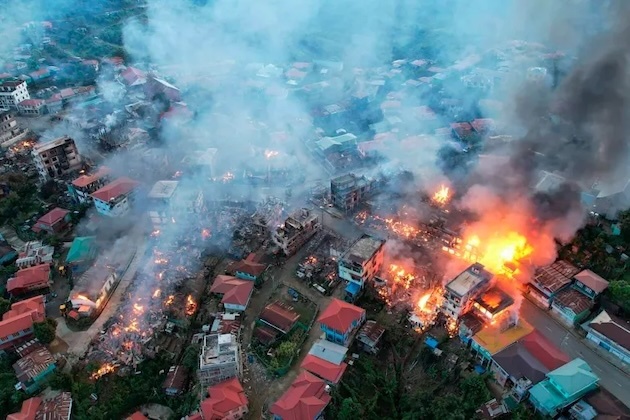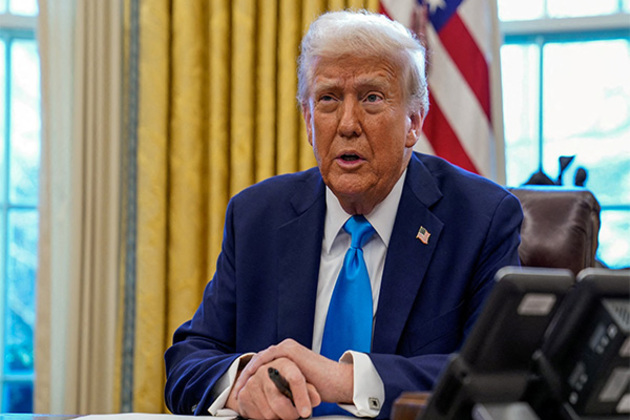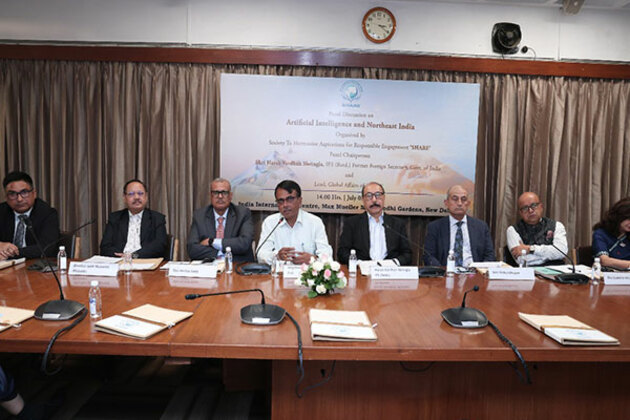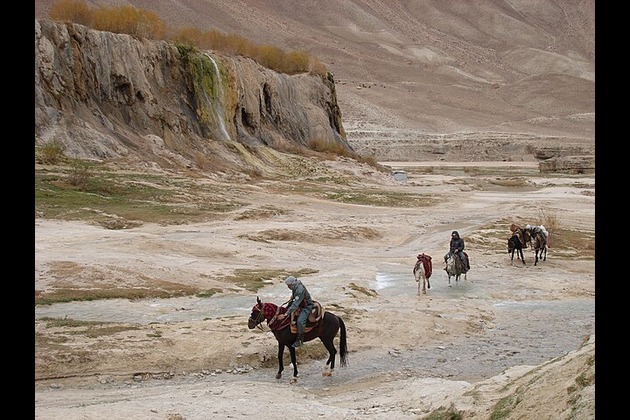'Confrontations between India, China may become regular'
ANI
01 Oct 2020, 19:48 GMT+10
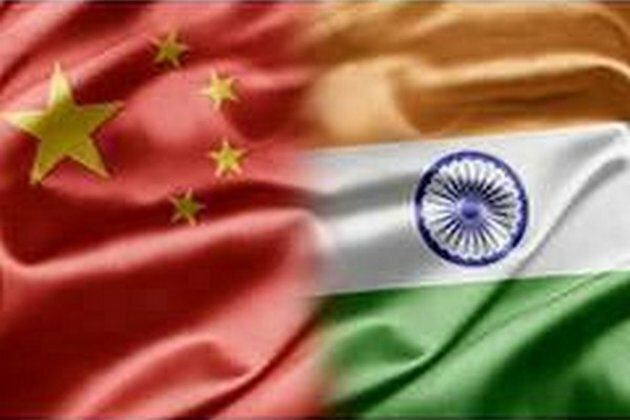
New Delhi [India], October 1 (ANI): Confrontations between India and China will likely become more regular as the two sides consolidate their Line of Actual Control in the western sector until there is no more ambiguity regarding their actual positions, according to an article published by the Observer Research Foundation.
Author Yun Sun in his article 'Confrontation in the Himalayas: China's growing risk tolerance' says that although China might use an overwhelming capacity to secure victory against India, the victory will not "help to alleviate China's key security challenges in the Pacific" because China gives prefers to avoid a two-front war in the West Pacific and South Asia.
Yun Sun opines that though China's assessment of India as the secondary threat and South Asia as its secondary theater is unlikely to change in the future, "the events this year have forced China to come face-to-face with a long list of factors in a real scenario of a war with India, including the heightened and sustained escalation of tension, the growing possibility of a real conflict with India and the military planning/mobilisation/preparation necessitated by it, as well as the Indian willingness to let the border issue spill over to the bilateral economic and trade relations.""The two-front war scenario has forced China to face the reality that any of its action on Taiwan could trigger India "adventurism" along the disputed border, just like China believes that India's border movement capitalized on China's weaknesses and distraction due to the COVID-19," Sun added.
Despite the joint stated commitment to de-escalate the tensions by India and China in Moscow on September 10, the disengagement has not yet been achieved.
According to the author, there are at least three options being discussed in China for its next steps.
The first option is a war that ends war, which means that "Beijing should finally strengthen its resolve and take the initiative to deter India with a war that ends wars, just like it did in 1962." The Chinese who believe in this option say that "if China were to back off, it will only confirm to India China's reluctance and/or inability to counter India, hence inviting more aggressive behaviors from India down the road."The author opined that this view is closely linked to that of the development in the West Pacific, specifically Taiwan.
"This proposal is closely linked to the development in the West Pacific, especially on Taiwan. China has been fraught over the deepening ties between US and Taiwan. During this freefall period of U.S.-China relations, the major arms sales package and senior U.S. government officials' visits of Taiwan have put rising strains on China's needed reaction. As it prepares for its options, especially the military option that enjoys vast popular support in China, the possibility and danger of a potential two-front war in the east and west at the same time is becoming increasingly real. For China to plan on a Taiwan contingency, the need to "tie up the loose end" in its western theater becomes even more pressing than before," Yun Sun said.
The second option is - second mover assertiveness. It means that China will prepare for a potential conflict with India but will not initiate and only react, "but forcefully and resolutely to an Indian act of provocation".
Yun Sun said, "The essence of a second mover strategy lies in China's confidence that it has the financial resources, military capacity and domestic political consensus to sustain and prevail in a protracted standoff (or war) of attrition vis-a-vis India. It reflects China's preference for peace, but also its resolve to fight a war if need be. China's 1962 war with India and the 1979 war with Vietnam both demonstrates the central position and essence of "self-defense war" concept in China's playbook. If the border standoff continues or escalates, this will be the most likely scenario."The third option is winning without fighting, which means settling disputes with India sans any war. To this, the author opines that this approach is like putting a "Band-Aid on the most dividing and disturbing issue between two great powers in the region".
"The most fundamental problem with this approach is that if China has to concede control of territory today, it removes the premise and need of its desired future outcome anyway. Considering China's economic slowdown and India's improving international status, such a future victory nowhere guaranteed. Therefore, while this policy had in the past been prominent in Beijing's decision-making vis-a-vis Delhi on the border issue, the development after Doklam has increasingly undermined its premise," Yun Sun said.
While concluding the author has opined that the confrontations, standoffs and incidents will likely become more regular as the two sides consolidate their Line of Actual Control in the western sector till there is no more ambiguity or room for imagination regarding their actual positions, and that future Line of Actual Control will serve as the foundation and the beginning of a real border negotiation between China and India. (ANI) Share
Share
 Tweet
Tweet
 Share
Share
 Flip
Flip
 Email
Email
Watch latest videos
Subscribe and Follow
Get a daily dose of Asia Pacific Star news through our daily email, its complimentary and keeps you fully up to date with world and business news as well.
News RELEASES
Publish news of your business, community or sports group, personnel appointments, major event and more by submitting a news release to Asia Pacific Star.
More InformationAsia
SectionBeijing crowds cheer AI-powered robots over real soccer players
BEIJING, China: China's national soccer team may struggle to stir excitement, but its humanoid robots are drawing cheers — and not...
COVID-19 source still unknown, says WHO panel
]LONDON, U.K.: A World Health Organization (WHO) expert group investigating the origins of the COVID-19 pandemic released its final...
DeepSeek faces app store ban in Germany over data transfer fears
FRANKFURT, Germany: Germany has become the latest country to challenge Chinese AI firm DeepSeek over its data practices, as pressure...
UN Demands End to Myanmar Violence as Junta’s Election Plans Risk Further Instability
Nearly three months after a devastating earthquake struck Myanmar, the country remains trapped in a deepening crisis, compounded by...
"Not going to let this Communist Lunatic destroy New York": Trump again takes a dig at NYC Dem primary Mamdani
Washington, DC [US], July 2 (ANI): US President Donald Trump was yet again at his rhetoric against the Democratic mayoral nominee for...
Seminar held in national capital focusing prospects of Artificial Intelligence in Northeast region
New Delhi [India], July 2 (ANI): A seminar on the prospects and possibilities of artificial intelligence in Northeast India was organised...
Business
SectionWall Street diverges, but techs advance Wednesday
NEW YORK, New York - U.S. stocks diverged on Wednesday for the second day in a row. The Standard and Poor's 500 hit a new all-time...
Greenback slides amid tax bill fears, trade deal uncertainty
NEW YORK CITY, New York: The U.S. dollar continues to lose ground, weighed down by growing concerns over Washington's fiscal outlook...
Taliban seeks tourism revival despite safety, rights concerns
KABUL, Afghanistan: Afghanistan, long associated with war and instability, is quietly trying to rebrand itself as a destination for...
Nvidia execs sell $1 billion in stock as AI boom drives record prices
SANTA CLARA, California: Executives at Nvidia have quietly been cashing in on the AI frenzy. According to a report by the Financial...
Tech stocks slide, industrials surge on Wall Street
NEW YORK, New York - Global stock indices closed with divergent performances on Tuesday, as investors weighed corporate earnings, central...
Canada-US trade talks resume after Carney rescinds tech tax
TORONTO, Canada: Canadian Prime Minister Mark Carney announced late on June 29 that trade negotiations with the U.S. have recommenced...




